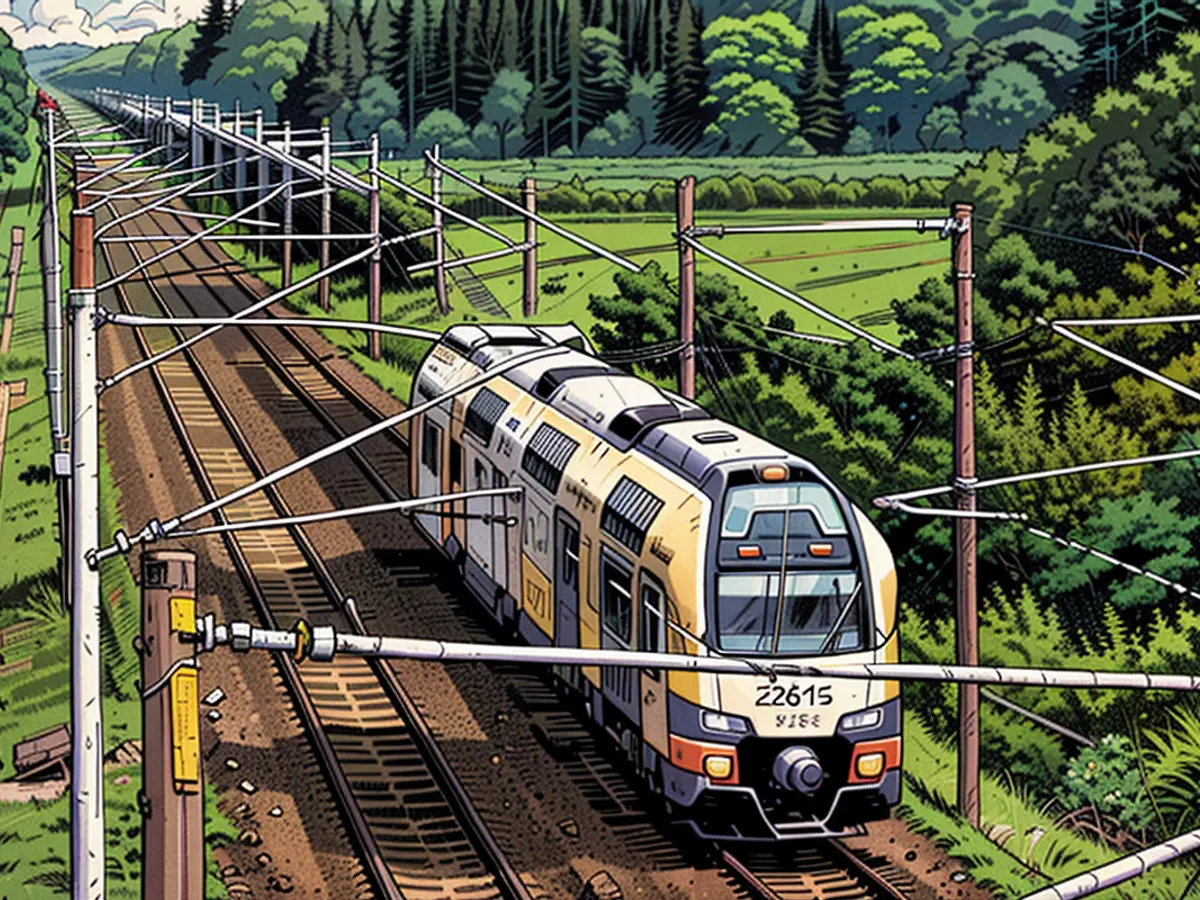- Despite persisting with the majority of their railway services, nations continue to rely on the traditional D-ticket system.
Despite increased expenses for subsidies for the Germany ticket, the provision of transportation within local and regional areas continues mainly in most federal states, as revealed by a nationwide survey conducted by the German Press Agency.
Schleswig-Holstein, however, declared cuts in June: savings were necessary and the rail-based local transport could not be fully sustained past 2025, it was pointed out - a two percent reduction in rail-based services would be implemented. The aim was to mitigate the situation over the forthcoming years.
Financial disagreements between the federal government and the states over the Germany ticket contributions have been a prolonged issue elsewhere.
In Lower Saxony, no definitive conclusion has been made regarding the services: the local transportation in the state is handled by three transportation associations. Two of them intend no reduction in the offer. One, the Landesnahverkehrsgesellschaft, is examining if cancellations become necessary due to the financial strain starting from the end of 2025. The Ministry of Transport affirms it has no intention of eliminating any connections.
Many states still maintain the offer
The Verkehrsverbund Berlin-Brandenburg (VBB) stated it was not contemplating reductions at this moment. States like Thuringia and Mecklenburg-Vorpommern also have no cut plans presently but are apprehensive due to financial concerns.
"The federal government should also assume responsibility for a functional rail network even in a tight budget situation. If traveling, commuting, and even freight transportation become excessively expensive, it won't be possible to increase rail usage more," said Mecklenburg-Vorpommern's Economics Minister Reinhard Meyer, for instance.
Bavaria's Transport Minister Christian Bernreiter added: "No cuts are being made in Bavaria's rail-based local transportation at present, but substantial financial adjustments and shifts are needed. If the federal government fails to provide the funds, permanent cuts will be necessary."
North Rhine-Westphalia secures the rail-based local transportation until the end of 2025 due to financial guarantees from the state of NRW. "Consequently, no immediate cancellations due to financial constraints are happening," a spokesman for the three responsible associations insists. From 2026 onwards, it currently seems like the budgeted funds would not cover even the existing offer - not to mention any planned increase in the offer. "Additional funds are urgently needed here."
The role of the proposed track charge increase is still unclear. The proposed hike is still in the planning phase requiring both legal consideration and political clarification at the federal and European levels. "Before the final resolution of the facts, we cannot indulge in speculations about any potential financial or operational implications."
Baden-Württemberg, Hesse, Rhineland-Palatinate, and Saxony-Anhalt also plan no cuts at present. The same holds true for Hamburg, indirectly impacted by cuts from neighboring states.
The ticket price increase
The Germany ticket, enabling limitless use of buses and trains for regional and local transport across Germany, currently costs 49 euros per month. However, the transport ministers of the states have declared a price increase for the upcoming year.
In the context of the nationwide debate about the Germany ticket and subsidies, Lower Saxony is currently examining potential cancellations for its rail-based services due to financial strain starting from the end of 2025. Despite this, the Ministry of Transport in Lower Saxony has affirmed no intention of eliminating any connections.








